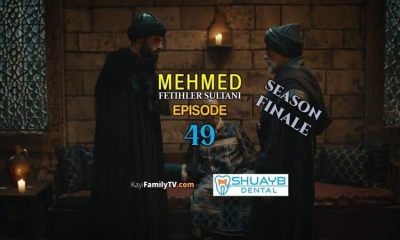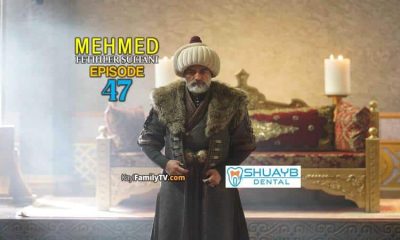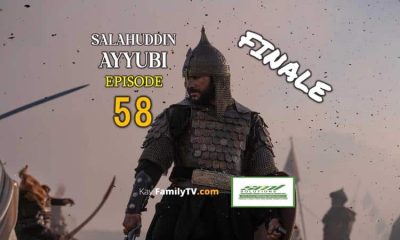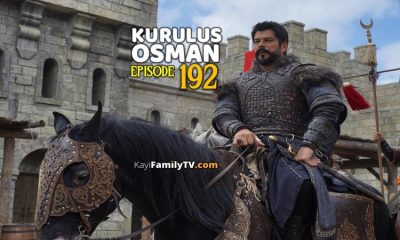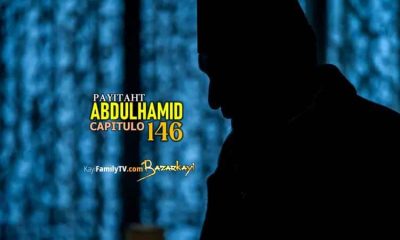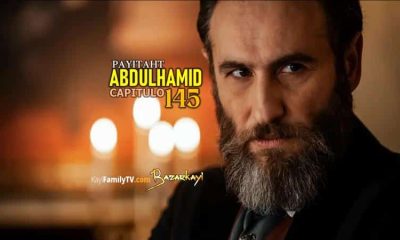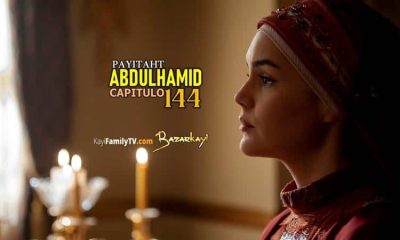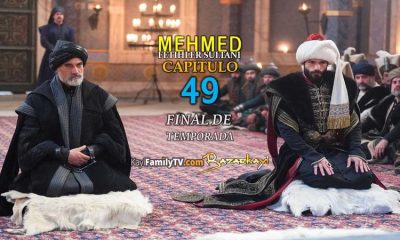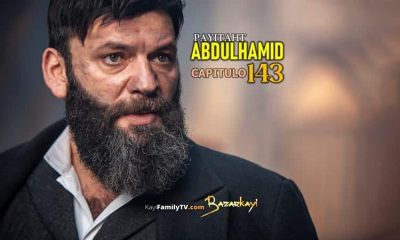ISLAMIC ARTICLES
SHOES COVERED WITH MUD
SHOES COVERED WITH MUD
It was a rainy day when Bâyezîd-i Bistâmî left his home for Friday prayers and made his way to the mosque. The showers came in a heavy downpour and the road was very muddy.
He decided to rest against the wall of a house until the rain stopped. Not wanting to bring all that mud even into entrance of the mosque, he cleaned his shoes by rubbing them against the wall of the house.
Once the rain had slowed, he continued on his way to the mosque. The, he remembered that he cleaned his shoes on the wall of the house belonging to a zoroastrian. He became regretful and thought to himself:
-How can I perform the Friday prayer without apologizing and getting his blessing? How can I be here listening to the call of Allah-subahanahu wa T’ala when I dirtied someone’s wall so thoughtlessly?
So he went back and knocked on the man’s door.
The man opened the door:
-Yes? How may I help you? do you need anything?
-I came here to apologise said Bayezid i bistami
The zoroastrian was surprised and asked:
– apologise? Apologize for what?
And he answered:
-I dirtied your walls by rubbing my muddy shoes against them. This was very wrong of me to do.
I am sorry. The heavy rain made me forget my manners.
The zoroastrian asked with astonishment:
-But why would this bother me or harm my house?
Our walls are already covered in mud.
The mud on your shoes wouldn’t make my house much dirtier. it’s really not a big deal.
But Bâyezîd-i Bistâmi replied:
-Yes but, it’s your right as it’s your house and I should have asked your consent.
The zoroastrian asked:
-Where did you learn such excellent manners and respect?
We learn from our religion, Islam, our Holy book the Quran and from our Prophet, Muhammad (Aleyhi Salatu Vesselam)
The zoroastrian thought to himself:
-Perhaps I should embrace this religion?
Then he took the shahadah, the Islamic testimony of faith, and became a Muslim.
Al hamdulilahi rabb il alamin!
ISLAMIC ARTICLES
Islamic New Year
Islamic New Year
السلام عليكم ورحمة الله وبركاته
لا غالب إلا الله
“Return to Allah”
بِسْمِ اللَّهِ الرَّحْمَنِ الرَّحِيم
Following the ways of Jews and Christians
Sahih Muslim, 2669 a
In-Book Reference: Book 47, Hadith 7
حَدَّثَنِي سُوَيْدُ بْنُ سَعِيدٍ، حَدَّثَنَا حَفْصُ بْنُ مَيْسَرَةَ، حَدَّثَنِي زَيْدُ بْنُ أَسْلَمَ، عَنْ عَطَاءِ،
بْنِ يَسَارٍ عَنْ أَبِي سَعِيدٍ الْخُدْرِيِّ، قَالَ قَالَ رَسُولُ اللَّهِ صلى الله عليه وسلم ” لَتَتَّبِعُنَّ سَنَنَ
الَّذِينَ مِنْ قَبْلِكُمْ شِبْرًا بِشِبْرٍ وَذِرَاعًا بِذِرَاعٍ حَتَّى لَوْ دَخَلُوا فِي جُحْرِ ضَبٍّ لاَتَّبَعْتُمُوهُمْ ”
. قُلْنَا يَا رَسُولَ اللَّهِ آلْيَهُودَ وَالنَّصَارَى قَالَ ”
فَمَنْ ” .
Abu Sa’id al-Khudri reported Allah’s Messenger (ﷺ) as saying:
You would tread the same path as was trodden by those before you inch by inch and step by step so much so that if they had entered into the hole of the lizard, you would follow them in this also. We said: Allah’s Messenger (ﷺ) , do you mean Jews and Christians (by your words)” those before you”? He said: Who else (than those two religious groups)?
Today’s date : 18 Jumada Al-Akhira 1445.
We forgot the Path, we stepped into the darkness, we lost our Way.
We forgot the Path, we are busy engaged in the illusions, the deceptions and grandeur of the Imperial Masters, we lost our way.
We forgot the Path, we became slaves, sold our souls to the plotters and planners, we lost our way.
We forgot the Path, I wonder how many in Filistin will say Happy New Year? we lost our way.
Oh People of Filistin, you stand firm on the Path, you stand strong in your way, your supporter is Allah, sufficient is he for your Path.
And those who follow Imperial and Colonial masters as slaves will be wishing each other Happy New Year.
Islamic New Year – 1 Muharram 1446, in approx 190 days based on the new moon ان شاءالله
And Allah knows best.
”Written By: Imran Ahmed”
ISLAMIC ARTICLES
The Clear Proof Declaration and Dissociation
The Clear Proof, Declaration and Dissociation
79 days! Who will come? Who will Go? O people of the Ummah of the Holy and Blessed Prophet (saw), we find that the answer is “nobody”. Around the globe, deep inside the hearts of the believer there is an intense beating, an intense assumption, an intense longing that somebody will wake up, somebody will rise and stand firm against the zaalim, somebody will rise to the Command and fight in the way of Allah (swt). But the worldly life, the deception, the illusion, and the glamour of the world has shadowed the believer’s heart that it doesn’t breathe for the hereafter but takes a gasping and longing breath for the world. The broken, limbs, the broken bodies, the broken hopes, the broken dreams, the broken lands, yet it is their hearts that are the winners, it is their minds that are the winners, it is their lives that are the winners, their blood is not wasted, their souls are lifted, their eternal life is beginning and the hearts that of full of emaan are a shining example of the Clear Proof and Declaration. O people of Filistin, let your example shine as a light of salvation for those who are under the shadow of darkness.
Surah At-Taubah (9)
بَرَآءَةٞ مِّنَ ٱللَّهِ وَرَسُولِهِۦٓ إِلَى ٱلَّذِينَ عَٰهَدتُّم مِّنَ ٱلۡمُشۡرِكِينَ
1) [This is a declaration of] disassociation, from Allah and His Messenger, to those with whom you had made a treaty among the polytheists.
فَإِذَا ٱنسَلَخَ ٱلۡأَشۡهُرُ ٱلۡحُرُمُ فَٱقۡتُلُواْ ٱلۡمُشۡرِكِينَ حَيۡثُ وَجَدتُّمُوهُمۡ وَخُذُوهُمۡ وَٱحۡصُرُوهُمۡ وَٱقۡعُدُواْ لَهُمۡ كُلَّ مَرۡصَدٖۚ فَإِن تَابُواْ وَأَقَامُواْ ٱلصَّلَوٰةَ وَءَاتَوُاْ ٱلزَّكَوٰةَ فَخَلُّواْ سَبِيلَهُمۡۚ إِنَّ ٱللَّهَ غَفُورٞ رَّحِيمٞ
5) And when the sacred months have passed, then kill the polytheists wherever you find them and capture them and besiege them and sit in wait for them at every place of ambush. But if they should repent, establish prayer, and give zakah, let them [go] on their way. Indeed, Allah is Forgiving and Merciful.
كَيۡفَ وَإِن يَظۡهَرُواْ عَلَيۡكُمۡ لَا يَرۡقُبُواْ فِيكُمۡ إِلّٗا وَلَا ذِمَّةٗۚ يُرۡضُونَكُم بِأَفۡوَٰهِهِمۡ وَتَأۡبَىٰ قُلُوبُهُمۡ وَأَكۡثَرُهُمۡ فَٰسِقُونَ
8) How [can there be a treaty] while, if they gain dominance over you, they do not observe concerning you any pact of kinship or covenant of protection? They satisfy you with their mouths, but their hearts refuse [compliance], and most of them are defiantly disobedient.
وَإِن نَّكَثُوٓاْ أَيۡمَٰنَهُم مِّنۢ بَعۡدِ عَهۡدِهِمۡ وَطَعَنُواْ فِي دِينِكُمۡ فَقَٰتِلُوٓاْ أَئِمَّةَ ٱلۡكُفۡرِ إِنَّهُمۡ لَآ أَيۡمَٰنَ لَهُمۡ لَعَلَّهُمۡ يَنتَهُونَ
12) And if they break their oaths after their treaty and defame your religion, then fight the leaders of disbelief, for indeed, there are no oaths [sacred] to them; [fight them that] they might cease.
أَلَا تُقَٰتِلُونَ قَوۡمٗا نَّكَثُوٓاْ أَيۡمَٰنَهُمۡ وَهَمُّواْ بِإِخۡرَاجِ ٱلرَّسُولِ وَهُم بَدَءُوكُمۡ أَوَّلَ مَرَّةٍۚ أَتَخۡشَوۡنَهُمۡۚ فَٱللَّهُ أَحَقُّ أَن تَخۡشَوۡهُ إِن كُنتُم مُّؤۡمِنِينَ
13) Would you not fight a people who broke their oaths and determined to expel the Messenger, and they had begun [the attack upon] you the first time? Do you fear them? But Allah has more right that you should fear Him, if you are [truly] believers.
قَٰتِلُوهُمۡ يُعَذِّبۡهُمُ ٱللَّهُ بِأَيۡدِيكُمۡ وَيُخۡزِهِمۡ وَيَنصُرۡكُمۡ عَلَيۡهِمۡ وَيَشۡفِ صُدُورَ قَوۡمٖ مُّؤۡمِنِينَ
14)Fight them; Allah will punish them by your hands and will disgrace them and give you victory over them and satisfy the breasts of a believing people
ثُمَّ أَنزَلَ ٱللَّهُ سَكِينَتَهُۥ عَلَىٰ رَسُولِهِۦ وَعَلَى ٱلۡمُؤۡمِنِينَ وَأَنزَلَ جُنُودٗا لَّمۡ تَرَوۡهَا وَعَذَّبَ ٱلَّذِينَ كَفَرُواْۚ وَذَٰلِكَ جَزَآءُ ٱلۡكَٰفِرِينَ
26) Then Allah sent down His tranquillity upon His Messenger and upon the believers and sent down soldiers angels whom you did not see and punished those who disbelieved. And that is the recompense of the disbelievers.
قَٰتِلُواْ ٱلَّذِينَ لَا يُؤۡمِنُونَ بِٱللَّهِ وَلَا بِٱلۡيَوۡمِ ٱلۡأٓخِرِ وَلَا يُحَرِّمُونَ مَا حَرَّمَ ٱللَّهُ وَرَسُولُهُۥ وَلَا يَدِينُونَ دِينَ ٱلۡحَقِّ مِنَ ٱلَّذِينَ أُوتُواْ ٱلۡكِتَٰبَ حَتَّىٰ يُعۡطُواْ ٱلۡجِزۡيَةَ عَن يَدٖ وَهُمۡ صَٰغِرُونَ
29) Fight those who do not believe in Allah or in the Last Day and who do not consider unlawful what Allah and His Messenger have made unlawful and who do not adopt the religion of truth from those who were given the Scripture – [fight] until they give the jizyah willingly while they are humbled.
يَٰٓأَيُّهَا ٱلَّذِينَ ءَامَنُواْ مَا لَكُمۡ إِذَا قِيلَ لَكُمُ ٱنفِرُواْ فِي سَبِيلِ ٱللَّهِ ٱثَّاقَلۡتُمۡ إِلَى ٱلۡأَرۡضِۚ أَرَضِيتُم بِٱلۡحَيَوٰةِ ٱلدُّنۡيَا مِنَ ٱلۡأٓخِرَةِۚ فَمَا مَتَٰعُ ٱلۡحَيَوٰةِ ٱلدُّنۡيَا فِي ٱلۡأٓخِرَةِ إِلَّا قَلِيلٌ
38) O you who have believed, what is [the matter] with you that, when you are told to go forth in the cause of Allah, you adhere heavily to the earth? Are you satisfied with the life of this world rather than the Hereafter? But what is the enjoyment of worldly life compared to the Hereafter except a [very] little.
إِلَّا تَنفِرُواْ يُعَذِّبۡكُمۡ عَذَابًا أَلِيمٗا وَيَسۡتَبۡدِلۡ قَوۡمًا غَيۡرَكُمۡ وَلَا تَضُرُّوهُ شَيۡـٔٗاۗ وَٱللَّهُ عَلَىٰ كُلِّ شَيۡءٖ قَدِيرٌ
40) If you do not go forth, He will punish you with a painful punishment and will replace you with another people, and you will not harm Him at all. And Allah is over all things competent.
يَٰٓأَيُّهَا ٱلنَّبِيُّ جَٰهِدِ ٱلۡكُفَّارَ وَٱلۡمُنَٰفِقِينَ وَٱغۡلُظۡ عَلَيۡهِمۡۚ وَمَأۡوَىٰهُمۡ جَهَنَّمُۖ وَبِئۡسَ ٱلۡمَصِيرُ
73) O Prophet, fight against the disbelievers and the hypocrites and be harsh upon them. And their refuge is Hell, and wretched is the destination.
فَإِن تَوَلَّوۡاْ فَقُلۡ حَسۡبِيَ ٱللَّهُ لَآ إِلَٰهَ إِلَّا هُوَۖ عَلَيۡهِ تَوَكَّلۡتُۖ وَهُوَ رَبُّ ٱلۡعَرۡشِ ٱلۡعَظِيمِ
129) But if they turn away, [O Muhammad], say, “Sufficient for me is Allah; there is no deity except Him. On Him I have relied, and He is the Lord of the Great Throne.”
”Written By: Imran Ahmed”
ISLAMIC ARTICLES
The Greatest Deception
The Greatest Deception
We came as economic migrants leaving behind our kith and kin, fertile soils, fresh air, the calling of the Adhan, the scent of the fire burning at dawn on the foothills of the mountains and the swirling of the river waters. We survived on meagre means, huddled together in 10’s and 20’s, one elder took care of the entire tribe, family with little means. The reliance, trust, emaan, faith, belief, hope, fear, love, care, need was solely attributed to our Creator, The Most Merciful, The Most Compassionate.
We buried our heads in the sand and the great deception began, whispers, whispers, and more whispers, he started his work and successfully did what he set out from the moment he was given time till the end of time to stir his whispers. What’s his end game? – to lead all those who deny the Creator to a blaze of torment and an eternal damnation.
We lost our identity, our language, our clothing, our food, our respect, our honour, our traditions, our philosophy. From meagre means to lavish, house, car, bank account, from 20 sharing, to only 2 sharing, from opening the door to those in need to slamming the door, from having deep embedded relationships to highly dysfunctional families, communities and bitter tastes in mouths that could not be satisfied.
Yet, the Creator is closer to his Creation for every breath that his Creation takes, but the Created forgot the Creator, at every junction, at every crossroad, at every point of no return, the Creator safe-guarded and protected those who turned to him and bowed in complete and utter submission.
Fajr – 20 to 30, Dhur – 30 to 40, Asr – 30 to 40, Magreb – 40 to 50, Isha – 30 to 40,
Jumah – 1000+
This is the greatest deception, mankind turned away from his Creator and became reliant upon the illusion of the world, yet the greatest command to be ever given was to Submit and bow our heads in humility.
With which face will we face our Creator on the day of Reckoning, with which face will we recognise our Holy and Blessed Prophet?










